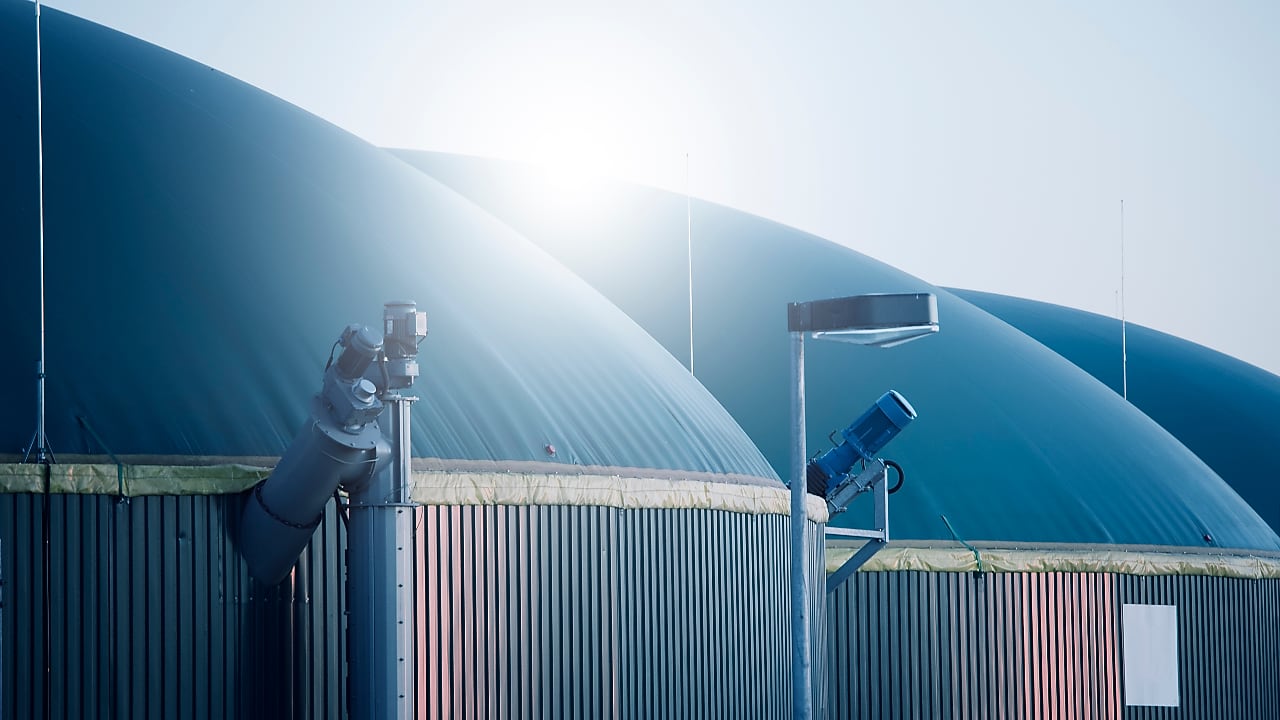
How technology drives sustainable low-carbon fuel development
As demand for low-carbon fuels accelerates, technological advancements are key to scaling both existing and emerging production pathways – ensuring a more sustainable energy future.
Key takeaways
While current production technologies are geared to support the processing of crop-based feedstocks, new ones should enable their diversification to help meet net-zero targets without risking improper land use or food-crop competition.
Technological advancements are essential for scaling low-carbon fuel production through more efficient processing techniques. Innovations such as Hydroprocessed Esters and Fatty Acids (HEFA), Alcohol-to-Jet (AtJ), and Power-to-Liquid (PtL) are critical to meet growing energy demands while reducing emissions.
Collaboration across industries, investment in advanced feedstocks, and supportive regulatory frameworks are crucial to accelerating the commercialisation of low-carbon fuels. Integrating waste-based and synthetic fuel technologies within supply chains while ensuring resilience will also be key to scale production.
Why technology is crucial for low-carbon fuel development
Reaching net-zero emissions is one of society’s greatest challenges. While no single technology or solution can solve this, businesses can help to drive the low-carbon transition by deploying existing decarbonisation pathways while supporting emerging innovations to accelerate progress.
Technology plays a crucial role in scaling low-carbon fuels, which are essential to reduce emissions in hard-to-electrify sectors such as heavy-duty transport, shipping, aviation, and energy-intensive industries like steel and cement. These sectors all require energy-dense alternative fuels, as they are not easily electrifiable.
According to the International Energy Agency (IEA), nearly half of emissions reductions needed by 2050 will depend on technologies that are still in development.1 Advanced low-carbon fuels that are scalable and cost-effective, such as hydro-processed esters and fatty acids (HEFA), Alcohol-to-Jet (AtJ), and Power-to-Liquids (PtL), offer promising decarbonisation pathways.
To accelerate the transition, industry stakeholders are working to optimise existing processes while incorporating sustainable feedstocks and refining techniques. Additionally, robust policy frameworks are needed to scale production and drive commercial adoption.
Digitalisation and artificial intelligence (AI) can also play a significant role in improving process efficiencies, reducing waste, and enhancing predictive analytics for feedstock supply-chain management.

Shell Energy Transition Strategy 2024
Our energy transition update shows how we are delivering against our climate targets. As we focus on areas of competitive strength, we are investing $10-15 billion on low-carbon energy solutions between 2023 and the end of 2025. We are also investing in oil and gas production with lower emissions as we provide energy today while helping to build the low-carbon energy system of the future.
Read the Energy Transition Strategy 2024 publication in full
Enhancing production pathways

For businesses aiming to reduce carbon emissions, sustainable low-carbon fuels are a key solution, with crop-based biofuels supporting agricultural economies in many regions.
Sustainable biofuels represent a critical solution to achieve this, with crop-based biofuels playing a support role in many regions for agricultural economies. However, to enhance sustainability, industries are looking to expand the use of waste-based feedstocks – such as agricultural and forestry residues, municipal solid waste, and other non-food biomass sources.2
Shell has strict sustainability policies in place for feedstock procurement, implementing rigorous risk assessments, sustainability standards, and certifications to mitigate environmental concerns.
Several of our initiatives focus on enhancing production pathways. Vision Bioenergy Oilseeds (VBO), a joint venture between Shell and S&W Seed Company, demonstrates how rotational oilseed crops like camelina can provide a sustainable alternative feedstock for biofuels. This crop has low input requirements as it is drought-tolerant, reduces soil erosion, and supports farmers with diversified income streams.3
Emerging technologies present new opportunities for businesses aiming to decarbonise. AtJ technology, for example, converts waste-based ethanol into sustainable aviation fuel (SAF). Shell’s investment in LanzaJet has supported the development of the Freedom Pines facility in Georgia, which aims to produce up to 38 million litres of SAF annually – reducing lifecycle emissions by up to 70% compared to conventional jet fuel.4
Another promising innovation is PtL, which uses renewable electricity and captured carbon to produce synthetic fuels. It is particularly suited to high-energy-demand sectors like aviation and shipping. Our expertise in synthetic fuel production, such as through the Pearl GTL plant in Qatar, positions us as a leader in advancing this next-generation technology.5
Hydrogen-based fuels, too, offer potential for long-term decarbonisation. Green hydrogen – produced using electrolysis powered by renewable energy – can serve as a feedstock for synthetic fuels and ammonia, which could be a key fuel source for the shipping industry, for example. Investments in electrolysis technology and hydrogen infrastructure will be critical to growing these solutions.

Forging the path ahead
Shell is committed to advancing low-carbon fuels through strategic investments, collaborations, and advocacy to support our customers in their decarbonisation journeys.
A key area of focus is feedstock development and supply-chain expansion. Shell invests in advanced feedstocks such as municipal solid waste, and non-food crops, to help ensure a stable and sustainable supply chain.
Additionally, collaboration across industries and with governments is essential to de-risking innovation and sharing financial burdens. Shell’s investment in Vision Bioenergy Oilseeds and its collaboration with LanzaJet highlight the importance of joint efforts in scaling low-carbon fuel solutions.4
Policy advocacy plays a substantial role in ensuring the long-term success of low-carbon fuels. As such, Shell actively engages with policymakers to promote supportive regulatory frameworks – including mandates for sustainable fuel use, carbon pricing mechanisms, and incentives for research and development.
Furthermore, digital tools and data analytics can enhance the efficiency of low-carbon fuel production by optimising logistics, monitoring carbon footprint, and improving operational performance. AI-driven models can help predict feedstock availability, reducing supply-chain disruptions and ensuring consistency in production.
By focusing on technological advancements, supply-chain resilience and policy advocacy, Shell can help businesses in their transition to net zero.
Achieving this transformation requires collective action, and we are dedicated to working alongside our customers to deliver sustainable, scalable, and commercially viable low-carbon fuel solutions.
Date of publication: August, 2025

Shell Renewable Diesel
Biofuels, constituting 3% of global road fuel demand, is a renewable, cost-effective solution offering a blendable, low-emission alternative made from organic matter.
Disclaimers
1 International Energy Agency. “Net Zero by 2050: A Roadmap for the Global Energy Sector.” May 2021.
2 Adam Hill. “Sustainable Aviation Fuel (SAF) Feedstocks: Biomass and Waste Materials”. February 2025.
3 Vision Bioenergy Oilseeds. “Shell and S&W Enter Joint Venture to Develop and Produce Sustainable Biofuel Feedstocks” February 2023.
4 LanzaJet. “LanzaJet welcomes new investor Shell.” April 2021.
5 Shell Qatar. “Pearl GTL.”


